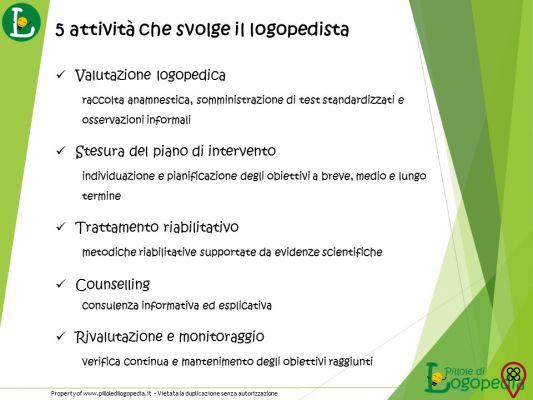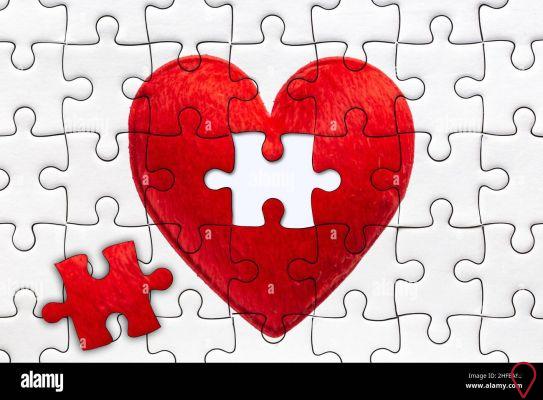Oh! Happiness… so sought after by many, but little understood by so many! Despite being, in theory, something simple, it still raises a series of reflections and even scientific studies. In fact, there is no shortage of research on happiness, even more so because it is directly related to our mental health.
It's what we call the science of happiness, a result of studies that began in the 1960s – although the concept itself was addressed in Aristotle's time. These studies have proven that happiness can contribute to our emotional well-being, improving our quality of life.
Is that you? Have you ever heard of this science of happiness? By the way, what is happiness for you? In this article, we are going to talk about this more than precious asset that can be in the simplest things in life, requiring no mystery or great challenge to exist. Come with us!
What is happiness?
If we look for a meaning for the term “happiness” in dictionaries, we will find something like “state of mind of someone who is happy or satisfied”, “success; bliss”, “a feeling of well-being and contentment” and so on. But as we are unique beings, the concept of happiness is subjective. And because it is so individual, it may seem, at first, something complex to define.

Because of this complexity, in addition to such an intense search, happiness is constantly being the target of approaches in several areas. For philosophers, happiness was associated with pleasure. But is this association made in other segments? For example, what is happiness for psychology? For religion?
Why is it so important to seek a definition for this much desired feeling? And why is it so essential for our mental health? By the way, what is the relationship between happiness and well-being? There are many questions, which is why the science of happiness has been dedicated to understanding this feeling and how to keep it in our life permanently.
What is the science of happiness?
Well, given everything we've covered so far, you might be asking yourself: "What is this science?" or “What does a happiness scientist do?”. In general terms, we can say that the science of happiness assesses how this feeling can positively affect our well-being and our quality of life.
With the help of three pillars, she helps to identify clues of what to do to really feel happy and find our life purpose. These pillars are: positive psychology, neuroscience and emotional intelligence, which we will talk about later.
Answering one of the questions above, the happiness scientist is a professional qualified to identify contexts in which they are inserted, to promote actions that guide us to emotional well-being and the improvement of mental health. They practically teach us to be happy, but through the way of looking with self-respect, identifying our own needs and self-knowledge.
All this, based on the way positive psychology sees genuine happiness (bringing a brief answer to the psychological view): the result of a life with positive experiences, greater quality and control of emotions.
What are the pillars of happiness for science?
As we mentioned in the previous topic, the science of happiness is based on three main pillars. Shall we understand a little about them?
positive psychology

It is a branch of psychology that studies the effects of positivity on life, focusing on the elements that bring us happiness: positive emotion, engagement, relationships, purpose and accomplishments/achievements.
It is a tool used both in offices and in other areas, such as the corporate environment, where its influences result in more collaborative teams and more satisfied and confident professionals.
Neuroscience
It is the study of the nervous system – formed by the brain, spinal cord and peripheral nerves. Its purpose is to map what goes on inside our brain and how it influences our behavior, especially in the way we perceive emotions.
The neuroscience of happiness is concerned with how happiness can impact our physical and mental lives, helping us to cope with adversity and feel more productive, creative and empathetic.
Emotional intelligence
This concept of psychology is used to designate our ability to deal with our emotions and how to react to them. It's more or less like knowing how to “taming one's own beast, so that someone else's beast doesn't bite us”.
More technically speaking, for this ability to work, there needs to be a balance between the areas present in the left and right hemispheres of our brain. Having emotional intelligence improves our interpersonal relationships and provides greater self-management and self-control, which can facilitate the achievement of full realization. And that has everything to do with happiness.
These pillars help us understand what happiness is and how we can be happier. They help us to identify clues on how to be truly happy and connected, living a life with more purpose.
How important is happiness for improving mental health?
Happy people get less sick. Most of them do not have chronic diseases, in addition to having a much longer life expectancy. And that has nothing to do with money, since happiness cannot be bought. Happiness is just a matter of being.

And it's not mere guesswork. Various scientific surveys on happiness are carried out regularly, and most can substantiate what has been reported here. This is the case of a study conducted by HSPH (Harvard School of Public Health) in 2020, which associated optimism and hypertension, revealing that those who think positively are much less likely to develop the problem.
A survey carried out by CVA Solutions, in 2016, showed that happiness is associated with numerous factors, such as having a positive mind and being optimistic (look at positive psychology there), being altruistic, learning to forgive, having a religion (or developing spirituality). Establishing life goals and exercising are other factors that the study points out to be responsible for bringing happiness.
medicine versus poison
It is worth mentioning that we are talking about genuine happiness, not the infamous toxic happiness. Real happiness is simple, possible and allows us to be human. Unlike false happiness. You may be asking yourself: but what is toxic happiness? And what is false happiness, anyway?
Calm down, we'll explain. If you've heard of Poliana syndrome, you have a clue as to what this toxic positivity is all about. It is an attitude that simply despises negative emotions, forcing us to always see the positive side of everything, not giving space to elaborate the emotions that make us human.
We regularly experience all kinds of feelings; and what makes us real, true, is also experiencing negative emotions. Knowing how to deal with them is one of the pillars of the science of happiness (emotional intelligence, remember?). And we shouldn't confuse this false positivity with positive psychology, which, despite its name, helps us embrace our worst emotions.
False happiness is a “cursed fruit” of a culture programmed to overvalue success at any cost, competition (including over who is “happiest”), artificiality in relationships, appearances and individualism. Bringing the mistaken idea that happiness is only real when shared, when we can only show it to others – usually on social media. And this compulsory happiness leaves us even more pressured, anxious and depressed.
How to apply the science of happiness in practice
Precisely to avoid falling into this trap of false happiness and not getting entangled in this plot of toxic positivity, it is necessary to apply the science of happiness in a genuine and natural way. No obligation to look happy at all times, just “for English to see”. Remember: happiness is a state of mind, so it's your own experience. You only owe that feeling to yourself.
With that in mind, we've brought you some tips on how you can put this important concept into practice for your daily life and your mental health. Believe me: it's not complicated and doesn't require any big rituals. See just how possible!

- Happiness is simple: It's not in complex things. It resides in a beautiful sunset, in the company of a loved one, in connection with nature… in the small things of everyday life. It's the happiness of the little things.
- Happiness can't be bought: being happy is not about having lots of money, a high position in the company, fame, a luxurious home. Being happy lies in the pure and simple satisfaction of being grateful for life and things.
— Happiness is learning and practice: you need to practice happiness every day, as if it were an everyday task. How to brush your teeth and take a shower. So get to work and make happiness become routine!
— Happiness is gratitude: we have already said here that we should be grateful for life and for what we have. But we can go further: how about being grateful for learning, for your emotions, for the people in your life? Gratitude is internal healing.
— Happiness is also being sad: one minute! That makes sense? Of course yes! Being happy is understanding that you won't always be happy and that's okay. Allow yourself to be sad and work through that feeling. It's like meditation: you don't empty your mind or isolate yourself. You perceive and experience everything without judgment, letting the flow go, embracing your emotions. This is the relationship between happiness and sadness, the two sides of this coin that is our personality.
— Happiness is forgiveness: if you hold on to resentments, you are only poisoning yourself and making yourself sick. Don't hold grudges and grudges. Forgive the other, forgive yourself. Live and let live. Your heart is too important to take care of it.
— Happiness is empathy: and here we are talking about genuine empathy, not that disguised hypocrisy. Be empathetic and kind, spread good things. Listen to each other, show that people matter – for you and for themselves. Cherish it, whether with a good word, a welcoming smile or just a good ear.
— Happiness is now: it may even be a little beaten, but we only have the now. The past has brought us this far, but we cannot go back to it. Let us not, therefore, let him haunt us. The future hasn't even happened yet (and when it does, it will be now). Let us not, then, be anxious about it, because to yearn for what has not yet happened is to live on conjecture. Live for today, because this is the only moment that fits in your hand.
— Happiness is balance: we have already spoken of sadness as a counterpoint for us to be truly joyful and unimpeded. And this is also about balance – both in the sense of not diving into bad news and in the sense of avoiding putting a rose-colored lens in front of your eyes, running wildly after the much-needed toxic happiness.
You may also like
- 7 Feng Shui tricks to attract happiness
- What is happiness, according to important philosophers?
- Know and apply the 5 pillars of happiness
Being happy is a set of factors, and they are all simpler than you might think. It is the realization in everyday life; it's the birdsong at 4 am, when the day begins to dawn; it is the smile of a child; it's that coffee in the late afternoon next to a dear friend; It's taking care of your body and your mind. There is no way to seek happiness, because, as the Buddhist monk Thich Nhat Hanh wisely teaches us: “There is no path to happiness. Happiness is the way".

























